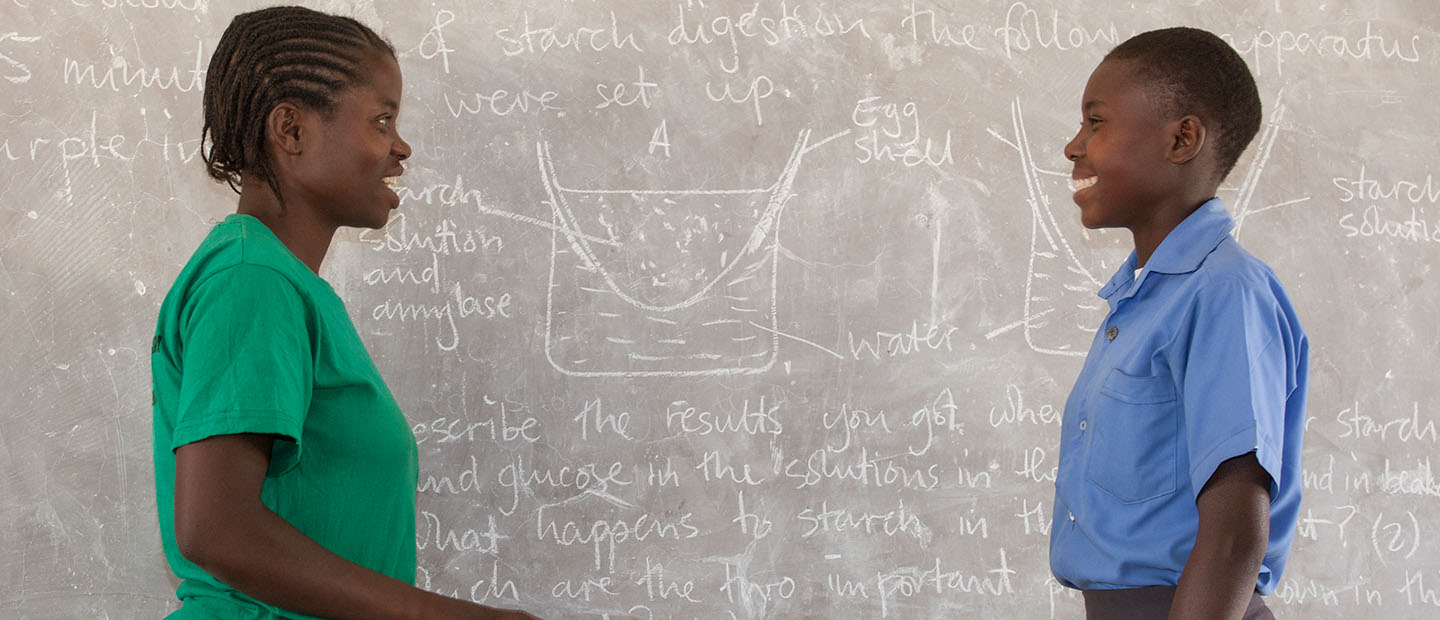
Girls’ exclusion from education is solvable

Angeline Murimirwa and Lydia Wilbard overcame great odds to complete their education, went on to co-found the CAMFED Association of women leaders in Zimbabwe and Tanzania respectively, and now steer our organization as members of the Executive Team.
Both spoke at recent high-profile events about the vital role those with lived experience have in solving the challenge of girls’ exclusion from education. They drew on their personal stories and represented the collective expertise of members in our powerful peer support and leadership network.
On Friday, April 23, Angeline joined a panel discussion as part of the Harvard Graduate School of Education’s ‘Education Now’ series, presented together with the Yidan Prize Foundation — bringing together members of its ‘Council of Luminaries’. She spoke alongside Professor Anant Agarwal of edX, Professor Usha Goswami of the University of Cambridge, and Professor Thomas Kane of Harvard University on the topic of ‘Innovations in Global Education.’
Investing in and with local experts
Angeline and her fellow panelists underscored the need for greater investment in education with a focus on equity – ensuring distribution of resources based on the greatest need. They discussed the social needs of young children, the importance of well-trained teachers and mentors helping students to navigate technology as part of a relevant curriculum, and the equity gap which means that online learning is only accessible to those with the resources to pay for hardware and internet access.
Equity is at the core of the grassroots action led by the young educated women in the CAMFED Association, whose expertise has proved invaluable during the pandemic.
Watch the Education Now: Innovations in Global Education webinar, presented by the Harvard Graduate School of Education and the Yidan Prize Foundation. You can also read a summary article in The Harvard Crimson.
They know first hand that marginalized students — including girls and children with disabilities — are hardest hit in times of crisis, and work with their rural communities to tackle the issues that push girls out of school: poverty, hunger, the resulting threat of early pregnancy and child marriage, as well as the lack of access to online learning.
CAMFED Association members invest their income from jobs and businesses, and their time as mentors and ‘big sisters,’ to support the most vulnerable children, running study and life skills groups to bridge the digital divide and keep girls’ education on track. Angeline was able to reveal in the session that of the 4.8 million children CAMFED has supported through school to date, 2.1 million were supported by young women once themselves clients of CAMFED, now spearheading our movement.
We were proactive in leveraging the community support system that we have built over the years, including Teacher Mentors and CAMFED Association members who really took the lead to make contact with vulnerable students… The achievement of a 100% return rate is a result of comprehensive interventions to help girls go back to school.
Lydia Wilbard, National Director, CAMFED Tanzania speaking at the Harvard Graduate School of Education webinar
Watch the panel discussion on re-engaging and keeping girls in school presented by the Harvard Graduate School of Education Office of Student Affairs.
The power of female leaders and role models
That same day, Lydia was part of another distinguished panel convened by the Harvard Graduate School of Education to discuss re-engaging and keeping girls in school in the wake of the pandemic, joining the Executive Director of UN Women, Phumzile Mlambo. Lydia highlighted the leadership of our Association members, who rallied community Champions and leveraged government partnerships, enabling CAMFED Tanzania to ensure 100% of supported students returned to the classroom following school closures due to the pandemic.
Their outreach included phone monitoring or home visits, the convening of small, outdoor study groups and wellbeing sessions, as well as the use of local radio to deliver content for students and advice for families. In their prominent roles CAMFED Association members not only inspire girls to remain focused on education and offer much-needed emotional support — but they also win the respect of local and traditional authorities who join their efforts.
The most important message is that girls’ exclusion from education is solvable. We can do something in this generation to make the world a better place. All the goals we have — improved incomes for families, climate action — can be achieved through education. That’s the most important area to invest in.
Angeline Murimirwa, CAMFED Executive Director – Africa speaking on the Solvable podcast
The Multiplier Effect of girls’ education
To hear more about why solving girls’ exclusion from education is a global imperative, and how female-led, locally-owned programs can succeed, listen to Angeline’s interview for the Solvable podcast. She challenges us to collectively support girls to go to school, thrive and lead change — when we do, they will multiply the benefits, not only resulting in more children accessing education, but also in healthier families, more equitable societies and a greener planet.
